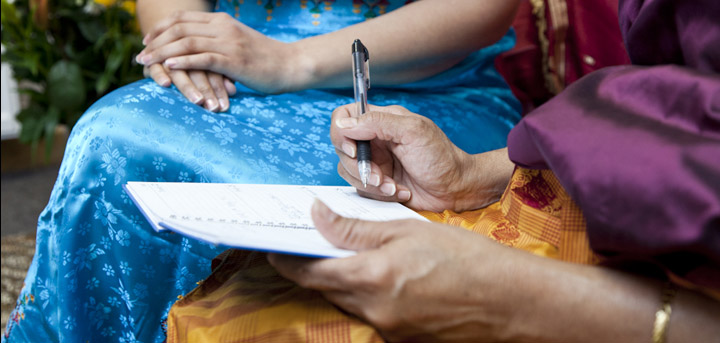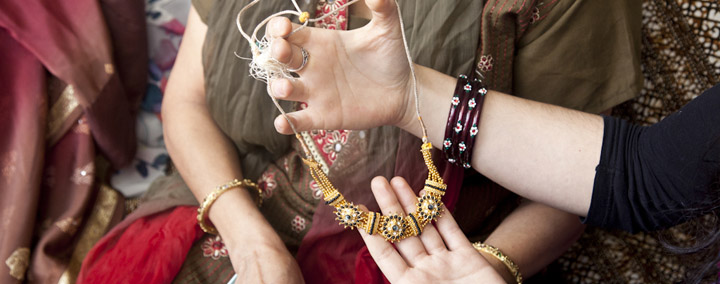Shameem’s story

Shameem is from Sudan. She moved to Scotland after marrying her British husband on a spouse visa. She lives with her husband and his parents. They are the only people she knows in the UK.
Shameem’s husband says he doesn’t want to be with her. He often taunts her for the way she looks, dresses and the way she speaks. He wants her to be more ‘British’. But although she can speak some English, and wants to learn, he will not allow this He does not let her go out on her own.
She has tried speaking to her mother-in-law about this but she says that Shameem should put up with it and that she should be thankful for being in the UK. The family tells her they can always send her back to Sudan.
When her husband assaulted her, neighbours heard and called the police who referred her to Shakti.
We spoke to Shameem in a safe place (we never speak to women in front of their families and we never tell families anything).
We spoke to her in her language about what could happen if she chose to stay or if she chose to leave. We reassured her that we would support her, whatever her decision.
Shameem wanted to leave. She was not entitled to support from the state (no recourse to public funds). But she was eligible to apply for the Destitute Domestic Violence Concession and hoped to get Indefinite Leave to Remain as a victim of domestic abuse. She did not need her husband’s permission to do this. If she is successful, she will be able to live in the UK permanently.
We arranged for Shameem to see an immigration lawyer.
She is now in our refuge and we have helped her to apply for benefits. She says that the emotional support from Shakti is helping her to rebuild her life.
Rukhsanna’s story

Rukhsanna was 14 when her parents told her that she was to be married to a cousin in Pakistan in three years’ time.
But, when Rukhsanna was 16, she started an online relationship with a young man. Her family found out and reacted very badly: they took her phone, interrogated her about the relationship, and kept her at home. They shouted at her and told her she had brought shame on the family. Her parents decided to bring the marriage forward, and said they would go to Pakistan after the school term ended.
Rukhsanna was worried about her situation and felt under a lot of pressure. Her faith, family and community were very important to her but she did not want to get married. She wanted to go university and build her own life first. She told her parents this, but they told her she had no choice.
Rukhsanna told a teacher what was happening. The school contacted Shakti.
Rukhsanna told our young people’s worker that she was scared she would be forced to go to Pakistan, and about what would happen to her there.
We helped her look at the various options and their possible consequences, and gave her a safe space to talk freely about her feelings and concerns.
We also worked with other agencies to make sure that her safety and needs were put first, and that she was involved in any discussions before anything was done.
Rukhsanna is now living independently away from home, with a forced marriage protection order, and also support from Shakti and other agencies. It has been a hard time for her but she feels she has a future, and is glad not to be married to her cousin in Pakistan.